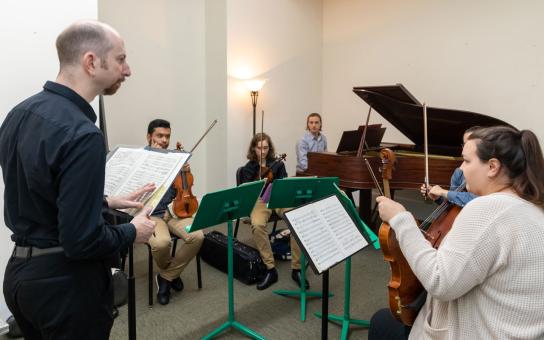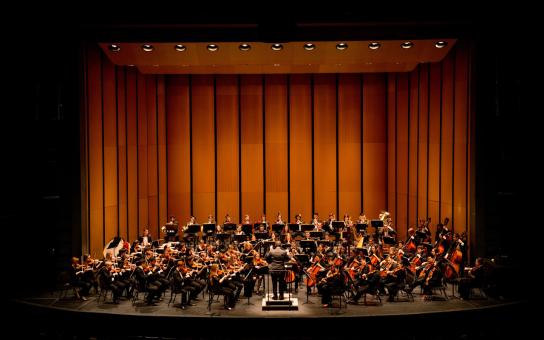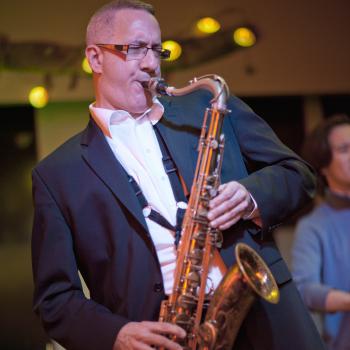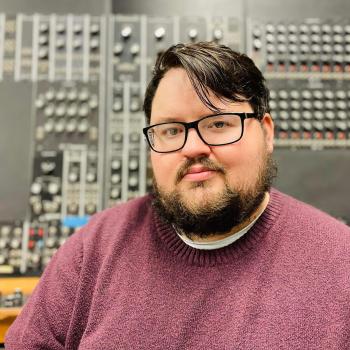Bachelor’s or Master’s in Music Composition (BM or MM)
The Music Composition program challenges individual composers to hone their creative skills. Students will cultivate the ability to use all the building blocks of music to create a diverse portfolio of original works, gain necessary professional skills and explore a variety of musical styles as they develop their unique voices.
Why Roosevelt

Accomplished Guest Artists
Each year, we bring in several distinguished and emerging guest artists, such as composers, sound artists, industry professionals, and music business owners/leaders, to teach lessons and give presentations about their creative works and professional paths.

Recognition in the Field
Our former students have received recognition, including awards such as the Guggenheim Fellowship, Aaron Copland Award, and Rockefeller Foundation Artist Fellowship. Graduates of Roosevelt University have gone on to pursue master’s and doctoral degrees at notable institutions, become Grammy-award winning professional composers, arrangers, and engravers, academic and independent educators at institutions, and artists-in-residence for prestigious organizations.

Building Musical Organizations
Roosevelt graduates have created renowned non-profit organizations, such as Access Contemporary Music, Anaphora Ensemble, Chicago Composers Orchestra, Singers on New Ground, the Heisenberg Uncertainty Players, and businesses such as Just A Theory Press.
“The Music Composition program is focused on challenging our students to realize their utmost potential as composers while encouraging them to explore and discover their own unique compositional voice. Our award-winning faculty are dedicated to giving students a comprehensive education that will prepare them for the professional life and business of being a composer.”
Kyong Mee Choi
Program Director of Composition Program and Music and Computing Program, Roosevelt University.


